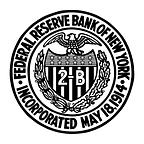Firm Progress Report
Stuart Mackintosh, Executive Director, Group of Thirty
This is being published from the New York Fed by a guest writer as part of Reforming Culture and Behavior in the Financial Services Industry: Expanding the Dialogue. The views of the author are his own and are offered by the New York Fed to contribute to discussions on this topic.
In 2015, the Group of Thirty issued a report, Banking Conduct and Culture: A Call for Sustained and Comprehensive Reform. Its diagnosis was direct: “[P]roblematic cultural norms, and subcultures within large banks, have caused widespread reputational damage and loss of public trust.” It’s hard to argue with that. The remedies, though, may have caught some by surprise. The report called for a “fundamental shift” toward thinking of culture as an essential component of a business model and as benchmark for assessing, rewarding, or disciplining employee conduct. Beyond rhetoric, the report presented an array of specific changes to incentives and governance structures. Here are just a few examples:
- Establish clear board responsibility for culture, be it through the lead independent director, a designated committee, or some other means.
- When deciding compensation, place financial performance on equal footing with conduct and culture metrics — that is, a 50/50 split.
- Formulate and implement a bank-wide values and conduct evaluation process for internal promotions and external hires.
- Set clear policies, escalation procedures, and protection for internal flag-raising or whistleblowing.
- Enforce meaningful and consistent compensation adjustments in the event of conduct and culture failures.
No one believes these changes will be quick or easy. Reform requires years of strong leadership, persistence, and consistency to address years of embedded behaviors and attitudes.
On October 20 — 15 months after the release of the report — I will have the opportunity to ask three bank leaders about their progress: Stephen Cutler, vice chairman at JPMorgan Chase & Co., Eric Grossman, chief legal officer at Morgan Stanley and Michael Roemer, group head of Compliance at Barclays. In particular, I want to discuss the challenges these firms have faced over the last year. Are there still employees who don’t “get it”? How can they be convinced that culture and conduct are central to the success of the firm? What mechanisms have you established to learn from mistakes — your own and the public failures of competitors? How is management’s message on conduct reinforced in hiring, promotion, and everything that happens in between? What happens when you discover a gap between what management says about the firm’s culture and what employees actually do?
Of course, the responsibility for improving a firm’s culture does not lie with one person alone. And just as no one person can change the internal culture of firm, no one firm can change the culture of the broader financial services sector. Collaboration is essential in an interconnected industry. While only three firms are represented on the panel, we will discuss the potential of broader collaboration efforts and the need for more systemic solutions to address a systemic problem.
